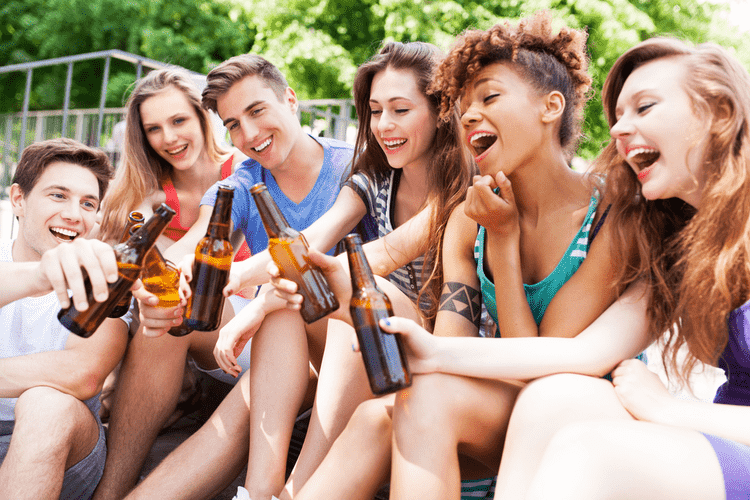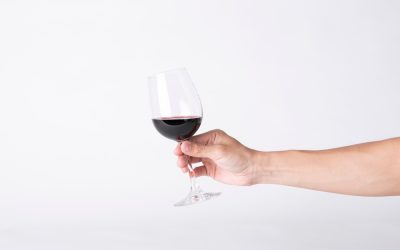As well as chronic illnesses, drinking too much alcohol can also have a range of short-term risks such as accidents due to impaired judgement, balance and vision. Dr Parker points out that people are two to five times more likely to be hospitalised following binge drinking episodes. Worldwide, excessive alcohol consumption has been linked to around three million deaths per year, including more than 400,000 from cancer. In 2022, a study from scientists at Oxford Population Health indicated that alcohol is a direct cause of cancers in the head, neck, oesophagus, liver, colon and breast. Previous research has also shown that approximately 4 per cent of cancer cases in the UK are related to alcohol.
New urine test may help some men with elevated PSA avoid biopsy

Drinks with a higher alcohol content, such as spirits, are more likely to cause dehydration than drinks with a lower alcohol content, such as beer or wine. We’re sure you’ve noticed that alcohol consumption makes you pee. Alcohol is a natural diuretic that draws fluid out of your body, expelling it through your kidneys and bladder https://thecupertinodigest.com/top-5-advantages-of-staying-in-a-sober-living-house/ more rapidly than usual. It does this by inhibiting your antidiuretic hormone — a hormone that’s used by the body to protect against dehydration. This hormone encourages your body to collect concentrated fluid in the kidneys and bladder, before peeing it out. The higher the alcohol content, the more dehydrating the drink will be.
Sugary drinks

If you feel like you are consuming adequate fluids but are still experiencing symptoms of dehydration, reach out to your healthcare provider for a workup. A rare disorder called diabetes insipidus causes the body to produce more urine. Most people make 1 to 3 quarts of Top 5 Advantages of Staying in a Sober Living House urine per day, yet people with diabetes insipidus can make up to 20 quarts of urine per day. If you cannot keep up with your fluid losses by drinking enough liquids, you can become dehydrated. You may start to see symptoms of dehydration improve in five to 10 minutes.
- This is because dehydration can cause a decrease in blood volume and low blood pressure, which can lead to reduced blood flow to the brain, causing fatigue and drowsiness.
- Most hard liquors have high alcohol content; the alcohol by volume (ABV) of liquor is around 40%.
- Factors can include how much you exercise, how much you sweat and how much fruit and vegetables you eat.
- “That’s pretty close to those hangover symptoms, right?” asks Brigitte Zeitlin, M.P.H., R.D., C.D.N., and owner of BZ Nutrition.
- “Before starting a statin, speak to a health professional about your alcohol consumption,” says Dr Unnati Desai, a national GP lead at Nuffield Health.
Health Categories to Explore
You can avoid dehydration by staying hydrated throughout the day. Again, instead of drinking large quantities of water all at once, you may want to sip on fluids throughout the day as it may be easier for your body to handle. “Alcohol itself is very calorific,” says Prof John Holmes, who directs the Sheffield Addictions Research Group. “Cutting down the alcohol content of your drinks is also a good way to cut out the calories and thus make them less damaging.
Dehydration Causes
Dehydration may also impair blood sugar response in some, such as those with type 2 diabetes. Research from 2017 found that people with diabetes who had 3 days of low water intake had an impaired blood glucose response. Research from 2016 found that the sensation of a cool, carbonated beverage makes people think the beverage quenches thirst better.
Alternatively, choose whole fruits over juice whenever possible to ensure you’re still getting fiber and other nutrients that help keep you hydrated. If you drink juice, look for 100% juice, ideally one that contains pulp so you get a bit of fiber, and enjoy in moderation. The experts we spoke to recommend alternating each alcoholic drink with at least one or two glasses of water.
- This is why people who drink to excess are more prone to having accidents and struggle to walk in a straight line.
- Some drinks are more dehydrating than others, but the amount of dry mouth you wake up with has more to do with alcohol volume, how much you drink per session, and what you combine with your favorite tipple.
- First, caffeine does have a diuretic effect, which means it causes you to urinate more.
Heavy drinking will cause dehydration, no matter what preventative strategies you are using. Electrolytes, especially potassium and sodium, play a critical role in fluid balance and facilitate the movement of water into cells and tissues. Drinking water while you’re still drunk isn’t going to prevent you from becoming dehydrated, but it may help lessen the degree to which you’re dehydrated. “Contrary to popular lore, caffeinated beverages like tea are not inherently dehydrating,” Thomason says. When consumed in excess, it may lower inhibitions and lead to unruly behavior, which we saw a lot of when people reacted negatively to federal mask mandates. Living in climates with high temperatures or engaging in prolonged physical activity raises body temperature and causes sweating.
Does Weed Make You Dehydrated?
This is because alcohol is a diuretic, which is a substance that induces diuresis or additional urine output. She goes on to explain these nutrients also help you retain fluids, while chugging a bunch of water will cause much of it to pass through your system without properly rehydrating you. The consumption of a cold soda may feel refreshing at first but likely will not satisfy a person’s thirst in the long run.
